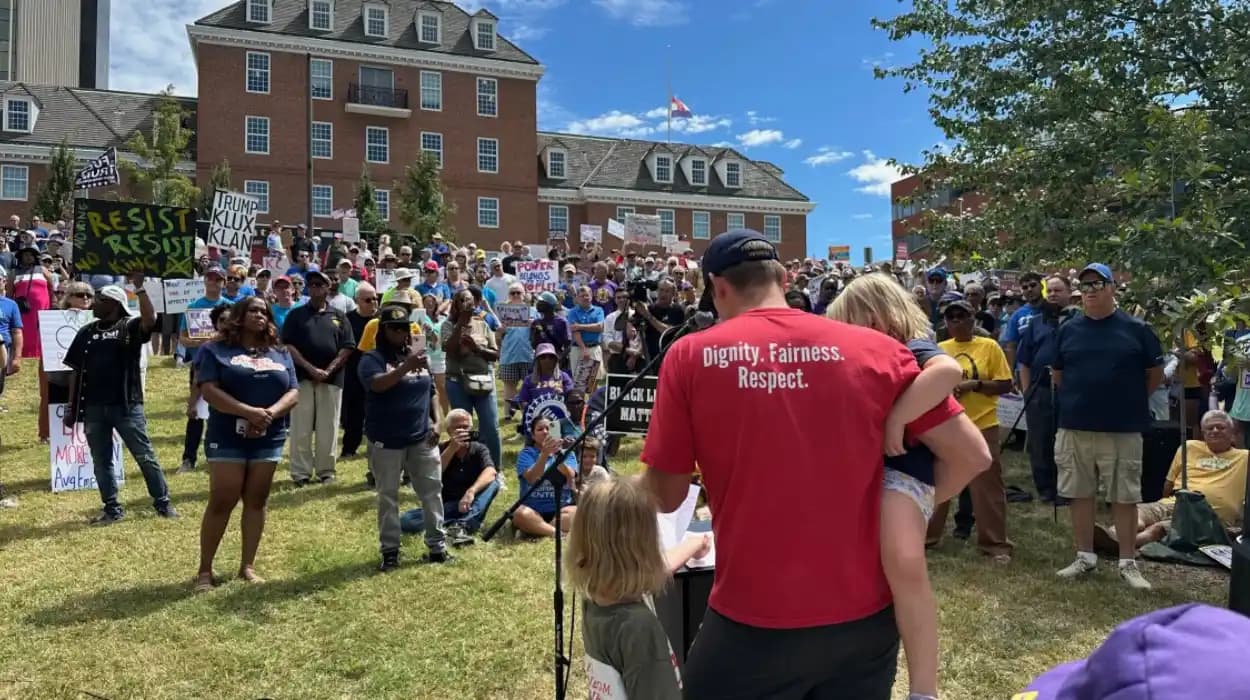Summary
- Missouri GOP advances Trump-backed redistricting plan amid backlash.
- Plan splits Kansas City’s Democratic district for GOP advantage.
- Seeks to flip Emanuel Cleaver’s seat, creating a 7-1 GOP majority.
- Critics call it a power grab undermining Missouri democracy.
The first public hearing on a proposal to divide a congressional district in Kansas City so that Republicans may run for seven of Missouri's eight U.S. House seats drew dozens of attendees. Six of those seats are already held by Republicans.
“Kansas City does not want to be divided. We deserve representation and a voice,”
said Kristen Ellis Johnson, an attorney from Kansas City who came to the Capitol with her husband and daughter.
“You are dividing the urban-dwelling, liberal-leaning population to purposely change those votes.”
In a developing national struggle between Republicans and Democrats for control over the distribution of U.S. House districts, Missouri is the third state to join the fray.
Texas redrew its U.S. House districts last month to offer Republicans a chance to capture five more seats at Trump's insistence. To give Democrats a chance to win five additional U.S. House seats, California responded with a redesigned map of its own. In November, voters must still approve the California plan.
Because Democrats only need to win three seats nationwide in the 2026 elections to seize control of the House, the stakes are very high. Additionally, as was the case during Trump's first term in office, the president's party typically loses congressional seats in midterm elections.
Republican Governor Mike Kehoe's proposed amendment to Missouri's congressional map would extend it eastward from Kansas City to include rural areas with a Republican leaning, so targeting a seat held by Democratic Representative Emanuel Cleaver.
On Thursday, a few rural people expressed their opposition to being placed in the same district as Kansas City.
“If they do that, people in Kansas City will not get their needs met in Congress. It totally dilutes their vote,”
Glenda Bainbridge, a resident from rural Odessa, told The Associated Press as she waited her turn to testify against the bill.
The proposed design is an improvement over the current congressional districts, dividing fewer counties and cities among numerous districts, according to state representative Dirk Deaton, who is supporting the redistricting legislation.
Demographic information revealing the racial composition of the recently suggested districts was not made public by Deaton. The Republican claimed he lacked information on the estimated party makeup of the electorate.
The scheme was condemned as a "morally corrupt" attempt to force Cleaver "into an early retirement" by Kansas City state representative Mark Sharp, the ranking Democrat on the redistricting committee.
If the revised map is approved, Cleaver has stated that he will contest it in court.
To stop the special session, the Missouri NAACP has already sued in state court. It contends that since there is no extraordinary circumstance to support Kehoe's call for a special session, it is illegal.
What legal challenges could opponents mount against the special session map?
Opponents could try to assert that the map dilutes the voting strength of minority communities, such as African American and Latino voters by either "cracking" or "packing" these communities into fewer districts, which could arise as a federal VRA issue for racial gerrymandering.
While federal courts have limited intervention on purely partisan claims for gerrymandering, opponents could still make a claim of severe partisan bias that unfairly favors Republicans that might lead them to state courts for any remedy available, assuming Missouri’s constitution prohibits partisan gerrymandering.
Legal challenges could be filed on the process of adopting the map if the opponents assert the special session and map adoption bypassed procedural steps, namely providing adequate public notice of a special session, acting too quickly to adopt the map, or unlawfully convening a special session without a quorum or due process.

